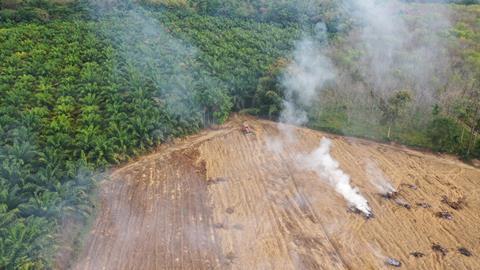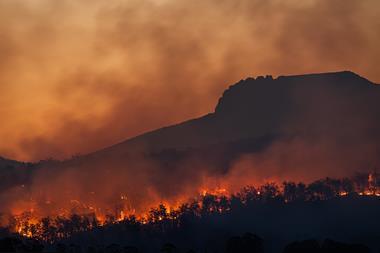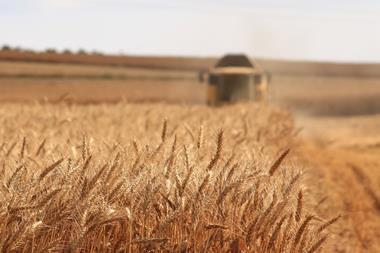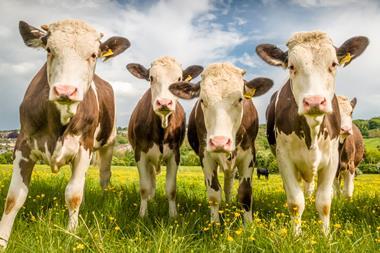“Nobody is safe” warns the latest report from the UN’s Intergovernmental Panel on Climate Change (IPCC), which was published on Monday.
Declaring a “code red for humanity”, the long-awaited study says it is now inevitable we will reach 1.5C warming by 2040 – which will bring more extreme heatwaves, droughts, flooding and wildfires.
Unless world leaders combine forces to slash emissions and stabilise rising temperatures in the next few years, things could get worse even more quickly.
The study – the first major review of the science of climate change since 2013 – is a sobering reminder that the food and drink sector’s net zero targets are not just a “nice to have”. If we don’t achieve them, we might see our ability to produce food severely compromised in the near future.
Hitting those targets, however, is going to be tough. While retailers and suppliers are making great progress on low-carbon energy and eliminating plastic from supply chains, tackling the climate impact of global commodities like palm oil and soy is proving much more difficult.
Deforestation for agriculture remains a major source of greenhouse gas emissions – and, although fmcg giants are making efforts to stamp it out from their supply chains, the complexity of global supply chains means it’s not an easy task.
Take Nestlé. Hailed as one of the fmcg firms ‘leading the way’ on palm oil sustainability in WWF’s latest palm oil scorecard, it became the first food company to deploy satellite monitoring across 100% of its palm oil supply chain in 2018.
But it still missed its target to ensure its palm oil was deforestation-free by 2020 – and is now aiming for a revised deadline of 2022.
The problem, as Nestlé reveals in its impressive new interactive video platform Beneath the Surface, is that much of the deforestation for palm oil is being driven by smallholder farmers – who make up 40% of the world’s palm oil supply. For many of these farmers, who are struggling to make ends meet, cutting down trees to grow more crops is the only way to increase their income.
Read more:
-
Our food systems cannot be separated from climate change. And we are well off the pace
-
Taking serious action on deforestation will be vital to achieving net zero
-
How to spot greenwashing and why brands were caught out
-
Who will be paying for vital sustainability initiatives - shoppers or manufacturers?
Especially now climate change is starting to have an impact on Malaysia and Indonesia, where around 84% of the world’s palm oil is produced. Earlier this year, torrential rains and thunderstorms led to flash floods in major growing regions in Malaysia, for example, which disrupted harvesting and spoiled crops. In some regions, yields were expected to drop by as much as 20%.
Eliminating these smallholder farmers from the supply chain won’t necessarily fix things – because they’ll simply sell to another, potentially less scrupulous, buyer. To genuinely tackle the problem of deforestation, it’s far better to help smallholder farmers boost productivity and diversify their income, so they can make a reasonable living on their existing land without needing to cut down more trees. Which is exactly what Nestlé and its partner organisations like Earthworm Foundation are trying to do.
It’s a perfect illustration of the complexities surrounding our climate challenge, which must be understood if we are to avoid a global catastrophe. Too often we are urged to take what looks like straightforward action – stop sourcing palm oil altogether, for example, or eliminate farmers from a supply chain. But every action has a consequence, and if we are genuinely going to hit net zero, rather than just exporting the problem elsewhere, we need to work collaboratively with farmers and agricultural supply chains across the world.
Kudos to Nestlé for attempting to explain that complexity to consumers, who have a key role to play alongside governments and business if we are to achieve our net zero target.
For too long, the solutions to the climate challenge have been portrayed in simplistic terms. Now time is running out, we need to be totally transparent about the task ahead – and work collaboratively, not in isolation – to solve problems like deforestation.




















No comments yet